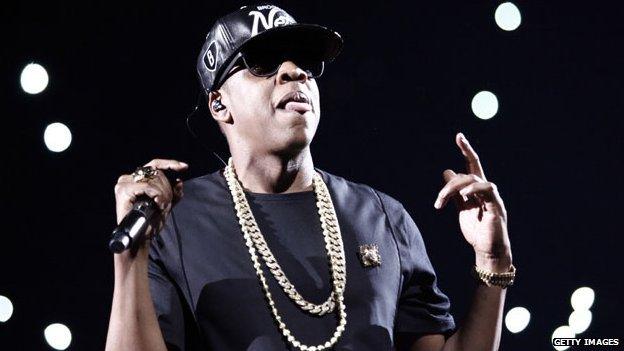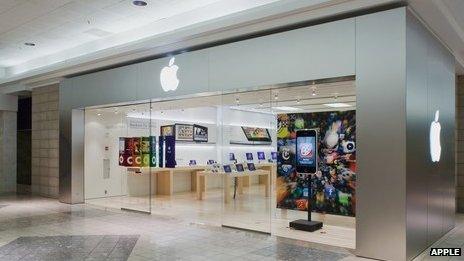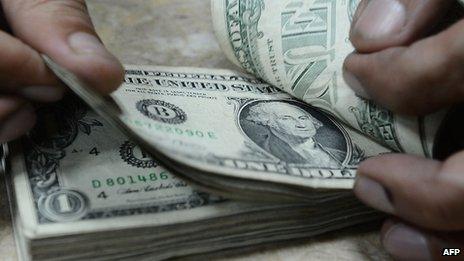Jay-Z, Empire, and the new music business
- Published

Jay-Z has garnered some 15 artists as co-owners of Tidal
It's life imitating art. The popular US TV show, Empire, is based on a music mogul whose record label offers artists a rare share in the business.
It's thought to be based on the life of rapper Jay-Z, whose real name is Shawn Carter, who has launched a music streaming business where artists ranging from Madonna to Coldplay are equity partners.
In Empire, Lucious Lyon, played by Terrence Howard, entices Snoop Dog to his label with a share of the profits.
He and his sons win over artists by outlining a vision of a label that understands that people listen to music streamed on the internet, and offers them part ownership in the newly publicly traded company.
Jay-Z has garnered some 15 artists as co-owners of Tidal, a music streaming business that is based on his recent acquisition of Swedish Aspiro for $56m (£38m). He's offering stock and cash in exchange for their promotion of Tidal.
I've written before about the end of the record collection, external as music streaming has grown rapidly - registering over 50% growth in 2013 from a year earlier in global markets.
Downloads declining
In the US for the first time, streaming is bigger than CDs. In 2014, streaming services generated more revenues than CDs, according to the Recording Industry Association of America.
Streaming services such as Spotify and Pandora accounted for $1.87bn in revenues in 2014, which amounts to 27% of total industry revenue, growing from 21% the year before even as the industry's revenue growth has remained flat for the last five years.
This is while digital downloads, such as those purchased from Apple's iTunes store, have been in decline since 2012.

Apple will soon launch a streaming service
Downloads had been the largest source of digital revenue for a decade, but revenues have fallen from that peak and dropped by 8.7% in 2014, though they still account for 37% of total industry revenues.
It follows that Apple will soon launch a streaming service, Beats Music, after it acquired Beats Electronics for an eye-watering $3bn from hip hop artist Dr Dre last year.
Just like in Empire, there's unmissable symbolism in a company that's owned by artists in an industry dominated by big record labels.
In a dramatic depiction of the tensions between artists and record bosses, Jamal Lyon, played by Jussie Smollett, dangled the boss of Creedmoor over a balcony to get the rights to his father's music back.
Fee or free?
Tidal isn't seeking to be a record company. Jay-Z describes Tidal as a record store. As such, it'll face stiff competition from the players already in the market.
Pandora and Spotify each have more than 70 million subscribers who access the free tier of their streaming services. Streaming is certainly popular, but its fast growth may well be because it's free.

The various streaming services have different payment models
Indeed, the numbers are a lot smaller when just counting those who pay a subscription fee. Spotify counts 15 million subscribers who pay $9.99 per month and Pandora says they have 3.3 million who pay $5 per month.
Tidal won't have a free subscription service. It'll offer 2 tiers - standard definition at $9.99 per month in line with Spotify and a high definition stream for $19.99 a month. Apple's Music Beats, to be launched this summer, also will not have a free tier.
The artist/owners of Tidal, including Alicia Keys, Beyonce, Coldplay, Daft Punk, Jack White, Kanye West, Madonna, Nicki Minaj, and Rihanna, are planning to offer "exclusive experiences" to make choosing Tidal and paying for a subscription worthwhile.
It'll need to be fairly appealing to win over those paying customers, who are but a small fraction of those enjoying music streaming on the internet.
For the music business, the trend is clear. The music industry, like many others, is being transformed by the digital age.